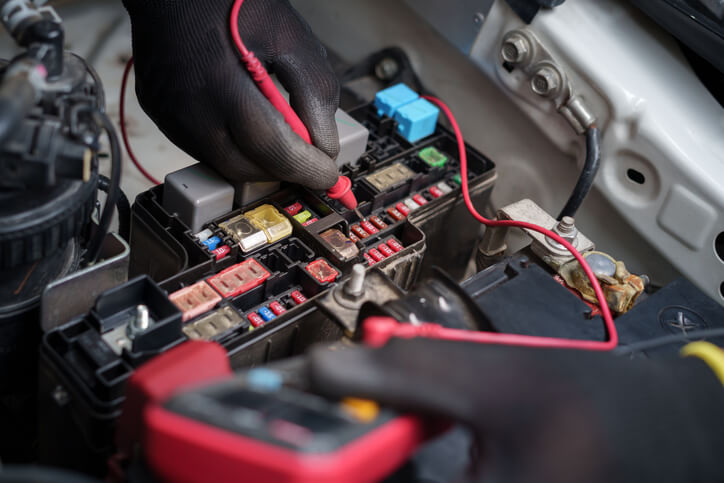Automotive Electrical Systems 101: The Basics for New Mechanics
Automotive training in Montreal highlights how automotive electrical systems are truly the backbone of modern vehicles, powering everything from the ignition and headlights to advanced safety features and electronic controls. In today’s cars, nearly every function relies on electricity in some way.
Understanding the basics of these electrical systems is essential for any aspiring mechanic, as it enables you to diagnose problems, perform basic repairs, and fully appreciate how various vehicle systems work together.
How a Car’s Electrical System Works (12-Volt Basics)
At the heart of every car’s electrical system is a 12-volt DC battery that acts as the primary power source. The vehicle’s electrical system is a closed loop (circuit) with the battery providing current that flows to components and then returns to the battery. Most cars use a negative earth-return system, meaning the vehicle’s metal chassis serves as the ground (negative) path back to the battery.
The system is divided into several circuits, each with its own purpose.
- Primary circuits: include the starting, charging, and ignition systems. These handle critical functions like starting the engine and keeping the battery charged.
- Ancillary circuits (or accessory circuits): power secondary features like the lights, radio, and power windows. This division ensures reliability: for instance, a blown radio fuse won’t kill your headlights or engine.
- Switches, relays, and fuses are also key to understanding: Relays allow low-current circuits to control high-current ones (like a starter or fuel pump), while fuses protect circuits by breaking the connection if current exceeds safe levels.
Key Components of an Automotive Electrical System
- Battery: Stores energy and provides the initial jolt to start the engine, as well as stabilizes voltage across the system.
- Starter Motor: Uses a large burst of current to crank the engine and begin combustion.
- Alternator: Powers the vehicle’s electrical systems once the engine is running and recharges the battery.
- Voltage Regulator: Maintains safe voltage levels from the alternator.
- Wiring and Ground: A network of cables carrying current, with the chassis as the return path. Good grounding is critical for reliability.
- Fuses and Relays: Protect systems from overloads and control high-current circuits safely.
Practical skills learned during automotive training in Montreal help mechanics understand how these components form the backbone of a vehicle’s electrical system.

Mastering Electrical Systems at Auto Mechanic School
Auto mechanic school will expose you to reading wiring diagrams, using diagnostic tools, and troubleshooting issues ranging from a blown fuse to a no-start condition. Hands-on training helps you practice real-world scenarios, giving you confidence to handle electrical issues on the job.
Employers value mechanics with strong electrical skills because they save time and money by pinpointing problems accurately.
The Rise of Hybrid & Electric Vehicles
With the rapid rise of hybrids and electric vehicles, automotive electrical knowledge has never been more important. These vehicles introduce high-voltage battery packs, inverters, electric motors, and complex control systems. Safety and advanced diagnostics are crucial.
That’s why many auto mechanic schools now offer specialized hybrid and electrical mechanic training. In Montreal, dedicated hybrid mechanic programs prepare students to handle high-voltage systems, learn specialized safety protocols, and gain the advanced skills needed to service EVs and hybrids.

Take the Next Step: ATC School Automotive Training in Montreal Awaits You
Are you ready to empower your future as a mechanic? Enrol in ATC Montreal’s Auto Mechanic Training or Hybrid & Electrical Mechanic programs, complete with Electrical Fundamentals, hands-on diagnostics, and pathways to certification.
Discover how ATC’s experienced instructors, small classes, and industry-aligned curriculum can accelerate your career.
Launch your career with confidence! Explore the hybrid and electrical mechanic training at ATC Montreal!


